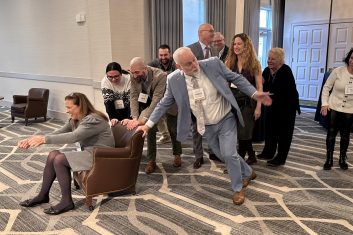SPONSORED CONTENT
Summer can bring more than just sunshine—sudden downpours, flash floods, and heavy storms are common across our region. For community associations, proper preventive and corrective maintenance of stormwater drainage facilities is crucial during these months to protect your property, maintain safety, and avoid costly damage.
The Importance of Stormwater Management Facilities Maintenance
Inadequate drainage performance resulting from poor maintenance and deteriorated structures can result in more than just inconvenience. It can lead to property damage, erosion, standing water, and increased liability for associations. Poor drainage can jeopardize structural integrity of surrounding structures and invite long-term repair costs.
What Effective Drainage Looks Like
The proper design of stormwater systems in a community setting typically includes:
- Gutters, downspouts, and leaders to collect and direct roof drainage.
- Properly pitched ground surfaces to convey runoff to collection structures
- Low-impact features like permeable pavers and rain gardens to provide groundwater recharge in appropriate areas
- Catch basins and lawn inlets to collect surface runoff
- Subsurface piping to convey collected stormwater to its discharge point
- Stormwater basins to attenuate outflows and reduce flooding.
Every component is engineered to work together to effectively collect and convey stormwater and release it to groundwater or offsite in a manner that does not contribute to flooding. When one or more components is poorly maintained or allowed to remain in disrepair, the effectiveness of the system is compromised, and further damage can result.
Common Challenges We See During Summer Months
As temperatures rise and rainfall patterns become more unpredictable, several recurring issues tend to surface in drainage systems. Some of the most common problems we diagnose include:
- Clogged Inlets and Outlet Structures: Accumulation of debris, litter, and sediment can block these structures, reducing flow capacity and increasing flood risk.
- Damaged Grading: Poor site grading often leads to standing water, which can erode surfaces, attract pests, and degrade infrastructure.
- Obstructed piping: Stormwater piping should be periodically inspected for accumulation of debris which can build up over time a result in obstruction.
- Aging Infrastructure: Older stormwater systems can be affected by modern runoff conditions that exceed their capacity. Substantially older systems may have deteriorated components requiring replacement to ensure continued function.
If left unaddressed, these issues can escalate leading to property damage, service disruptions, and costly emergency repairs.
Proactive Steps for Associations
We recommend community associations begin a new habit this summer of performing regular maintenance for their stormwater facilities’ specific needs that should include at a minimum:
- Routine inspections of all stormwater structures.
- Debris removal from gutters, downspouts, catch basins and lawn inlets, subsurface piping, stormwater basins and outlet structures.
- Vegetation control in and around ponds, swales, and inflow and outflow structures.
- Assessments of erosion-prone areas and hardscapes for water damage.
- Engineering evaluations for systems experiencing recurring issues.
Timely preventive and corrective maintenance and minor improvements can often prevent the need for large-scale repairs.
Prepare, Don’t React
Summer storms are inevitable. Flooding and damage don’t have to be. With a proactive approach—and the right engineering partner—community associations can minimize the potential for damage, protect their assets, and ensure resident safety.
ABOUT THE AUTHOR
Our team at Kipcon is here to support your community with the design, evaluation, and maintenance of drainage systems built to perform. Reach out to schedule a drainage assessment or consultation today: info@kipcon.com or call 732-220-0200.
SPONSORED CONTENT





